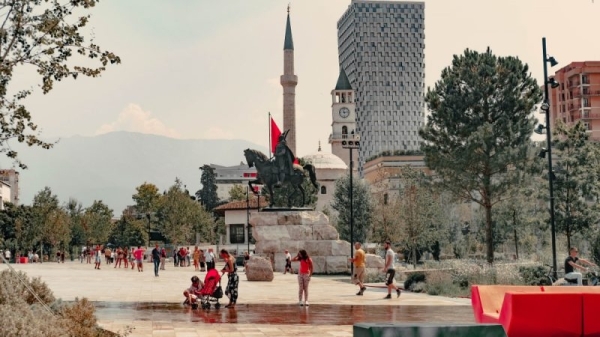Albanian population fell by 1.3%, mainly youth, in 2022

The population of Albania decreased by 1.3% in 2022, equivalent to some 36,000, mainly young people, due to emigration, signalling the sharpest population decrease since World War II.
The Western Balkan EU hopeful is amid a demographic crisis due to its ageing citizens, declining birth rate and the thousands that emigrate every year. Some 700,000 people have left in the last decade, bringing the total to around 1.4 million since the fall of communism in 1991.
According to data published by the country’s Institute of Statistics (INSTAT), the current population is estimated at around 2.79 million in 2022, down from 2.83 in 2021. The country’s population has been declining for years, but according to INSTAT, it increased from 0.3% in 2019 to 0.6% in 2020 and 2021 and more than doubled to 1.3% in 2022.
But the picture is even more concerning when the data is categorised by age. Albanians between 20-24 witnessed a decrease of 7.1%, equivalent to 15,000 people, with 25-29-year-olds decreasing by 6,300.
In terms of the economically active, those employed or working and paying into the system decreased by over 32,000. The real number is likely higher, but there will be little clarity until the twice-postponed census is carried out in September of this year.
Albania has made headlines in the UK during the last year for the number of its citizens crossing the channel in dinghies and seeking asylum there. The British authorities say they counted more than 15,000 Albanian citizens during the last year, mainly young people.
The issue sparked a big debate in British media and led to comments from the Home Office and its ministers that were decried as xenophobic.
At home, the government has made little comment on the situation while the opposition blames the issue on Prime Minister Edi Rama.
In December 2022, Rama told EURACTIV in an exclusive interview that he cannot tell the country’s young not to leave.
“I have never thought, and I still don’t think that it’s a good idea to believe and let alone communicate that the young people should absolutely stay here because I think they have the right to try, and they should make use of their freedom, and it’s absolutely in their hands,” Rama said.
He added that he does not see the situation as a tragedy, but rather as a part of life and he thinks it can actually bring some positive benefits.
“These people return with a different mentality, they come with some experience, and they open enterprises, they do things differently, and they make successes,” he said, adding, “I think we should we should do everything to keep going, to improve conditions.”
Opposition leader Sali Berisha told EURACTIV in December that his party is working to bring people back.
“We are trying to extend our links not only with well-educated people in Albania but also with people in the UK, Germany, the United States, France, and everywhere. It’s a huge potential,” he said.
He added that a “brain gain” project will be “one of our most important.”
As for fall out from the situation, one issue is that of pensions as it will likely damage the state’s ability to pay them or fund services such as healthcare. Secondly, there is a big shortage of workers in hospitality, tourism, and manufacturing, as well as dwindling numbers of doctors, nurses, and other skilled professionals.
(Alice Taylor | Exit.al)



